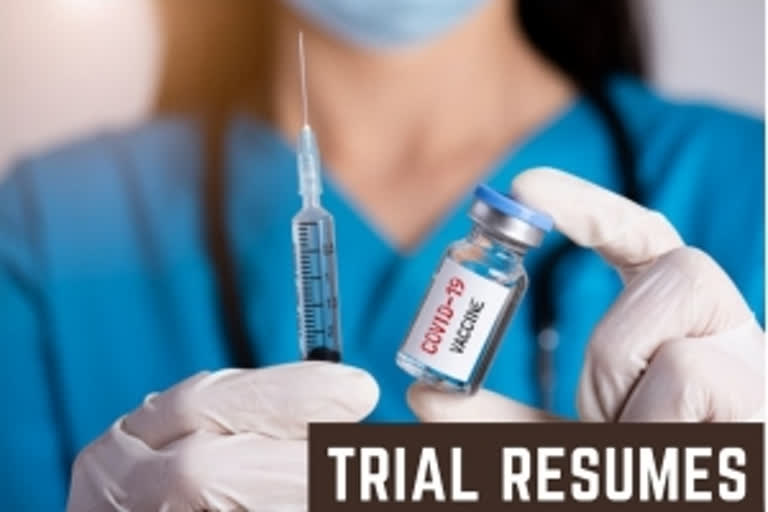London (UK): Biopharmaceutical giant AstraZeneca and the University of Oxford on Saturday said that clinical trials for their coronavirus vaccine have resumed in the UK after the Medicines Health Regulatory Authority's (MHRA) confirmed that the trials were safe.
The human trials resumed days after a pause had been announced in the trials after an adverse reaction in one of the participants.
AstraZeneca and the University of Oxford, as the trial sponsor, said that they cannot disclose further medical information but confirmed that independent investigations concluded that the trials were safe to restart.
Clinical trials for the AstraZeneca Oxford coronavirus vaccine, AZD1222, have resumed in the UK following confirmation by the MHRA that it was safe to do so, AstraZeneca said in a statement.
AstraZeneca is committed to the safety of trial participants and the highest standards of conduct in clinical trials.
The company will continue to work with health authorities across the world and be guided as to when other clinical trials can resume to provide the vaccine broadly, equitably and at no profit during this pandemic, the company said.
On September 6, the standard review process triggered a voluntary pause to vaccination across all global trials to allow the review of safety data by independent committees and international regulators.
Also Read: DCGI issues show cause notice to SII for not pausing trial of COVID vaccine
The UK committee concluded its investigations and recommended to the MHRA that trials in the UK are safe to restart.
All trial investigators and participants will be updated with the relevant information and this will be disclosed on global clinical registries, according to the clinical trial and regulatory standards, AstraZeneca said.
AZD1222 was co-invented by the University of Oxford and its spin-out company, Vaccitech. It uses a replication-deficient chimpanzee viral vector based on a weakened version of a common cold virus (adenovirus) that causes infections in chimpanzees and contains the genetic material of the SARS-CoV-2 (COVID-19 virus spike protein).
After vaccination, the surface spike protein is produced, priming the immune system to attack the SARS-CoV-2 virus if it later infects the body.
AstraZeneca, the biopharmaceutical giant in tie-up with the university to produce the vaccine, had described the pause as a "routine" one following what was an unexplained illness.
The Oxford University's Jenner Institute team started working to develop a vaccine against the SARS-CoV-2, or the virus which causes COVID-19 in January this year and says it has been working with unprecedented urgency in a race against the coronavirus.
Also Read: Oxford COVID vaccine trials delayed over safety approvals
Phase I and II results proved positive as they showed that the vaccine-induced strong antibody and T-cell immune responses for up to 56 days after they were given.
T-cells are crucial for maintaining protection against the virus for years.
During the study, participants who received the vaccine had detectable neutralising antibodies, which have been suggested by researchers as important for protection, and these responses were strongest after a booster dose, with 100 per cent of participants' blood having neutralising activity against the coronavirus.
The next step in studying any vaccine is to confirm that it can effectively protect against COVID-19 infection.
According to the Oxford University scientists, of the hundreds of potential COVID-19 vaccines in development, six are in the final stages of testing, known as phase three clinical trials.
One of these is the vaccine being trialled at the university along with AstraZeneca and is among the most promising candidates in the fight against the novel coronavirus.
(PTI Report)



